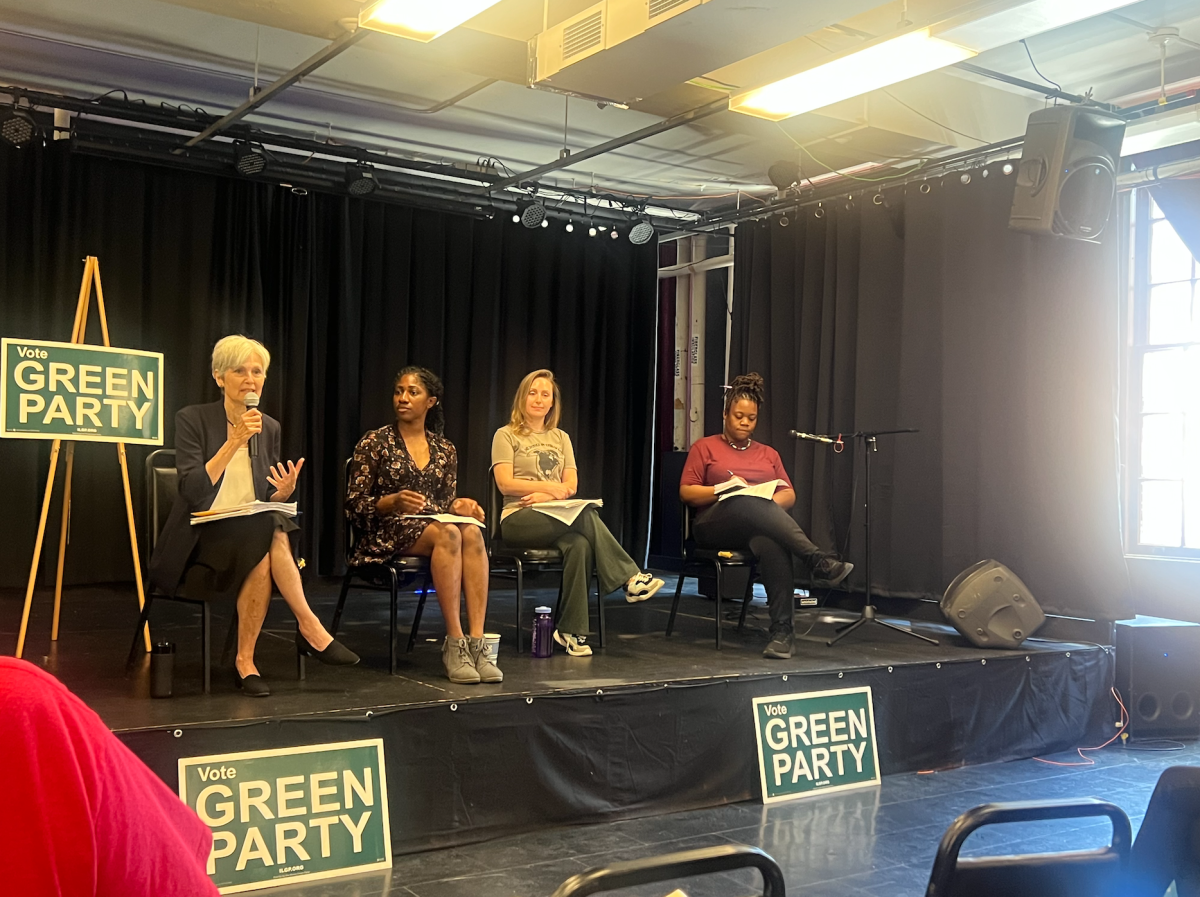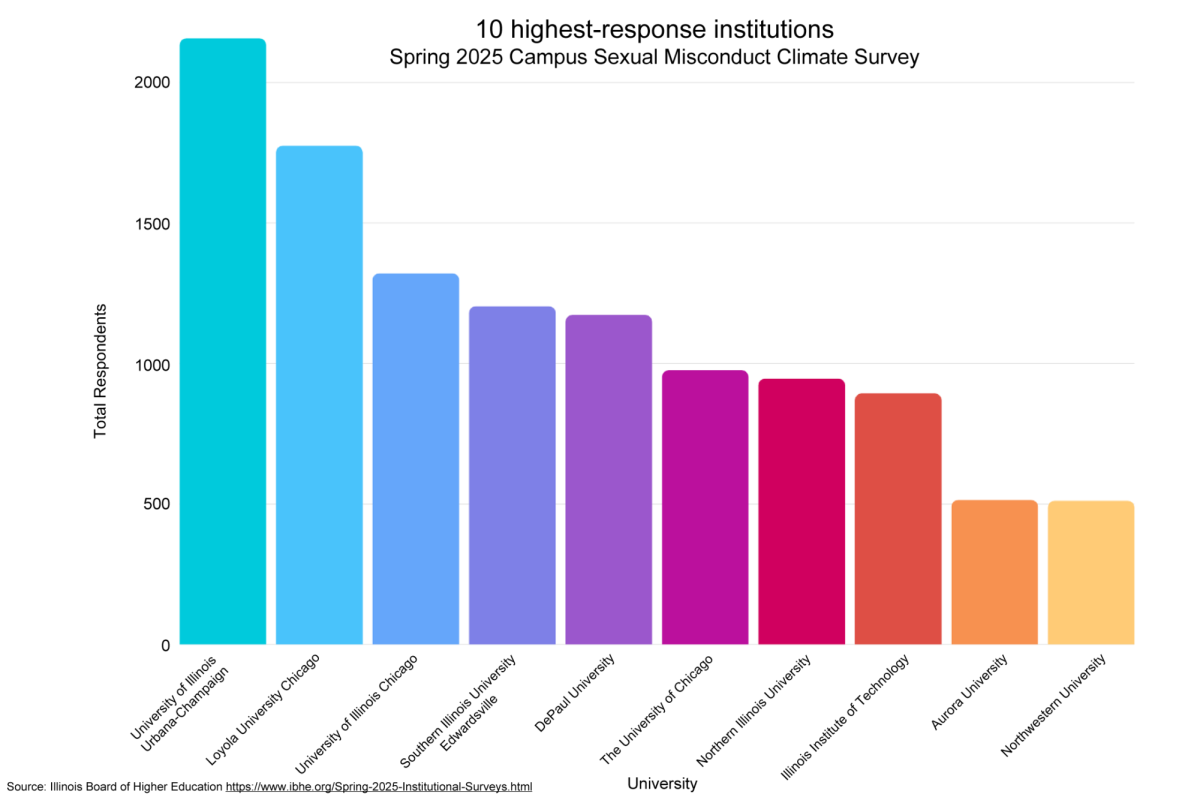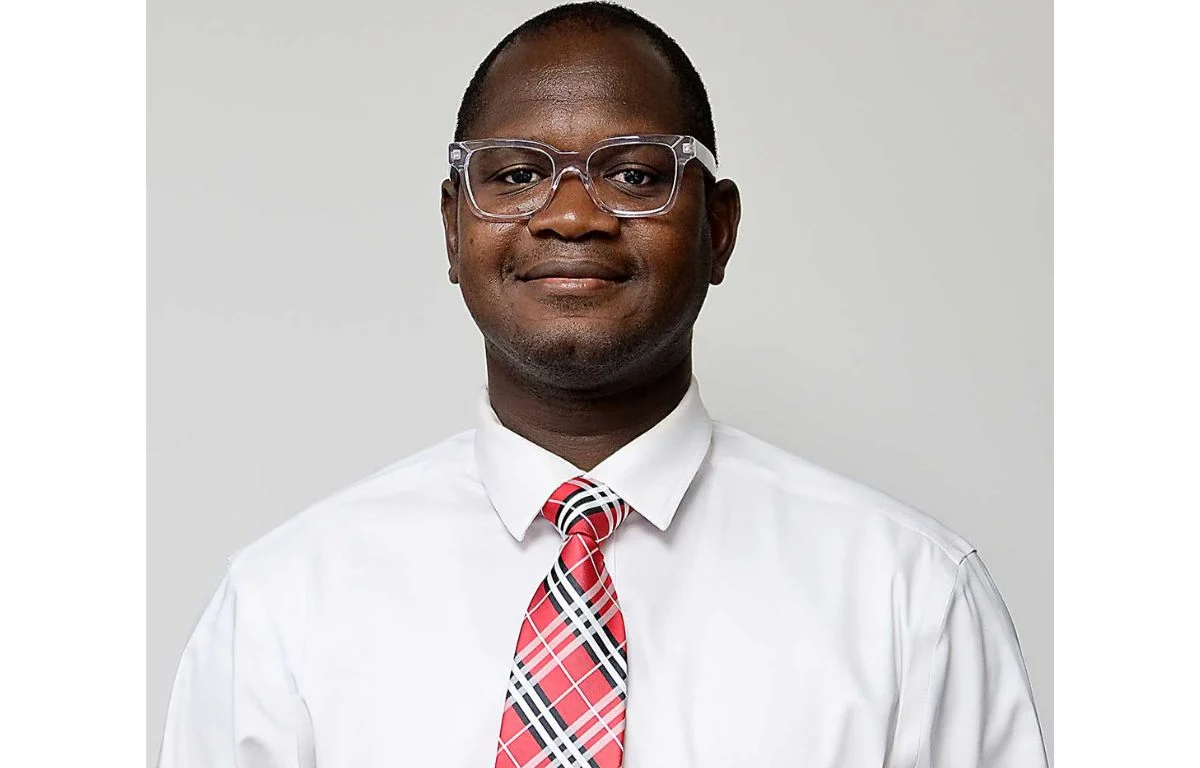Green Party presidential candidate Jill Stein and Green Party IL-13 congressional candidate Chibu Asonye held a panel discussion at the Urbana-Champaign Independent Media Center on Thursday, addressing the challenges and potential of third-party politics in the U.S. The candidates discussed the critical issues of ballot access, the influence of money in politics and advocated for significant political reform.
The Two-Party System
Stein opened the discussion by criticizing the two-party system in the U.S., which she described as a mechanism of control by wealthy elites.
“If you only have two parties, it’s much easier to buy them out,” Stein said. “You can corner them and know who the big players are, and it’s very vulnerable to being corrupted and bought out by the billionaires, the bankers and the war profiteers.”
Stein also said that the political system and status quo are maintained by the ultra-rich.
Get The Daily Illini in your inbox!
“The empire and the oligarchy that goes with it… that’s kind of what our system is,” Stein said. “It is a system of control by the very rich, and we have an empire which is inflicting its will around the world.”
Asonye echoed Stein’s sentiments, pointing out the complacency among voters who feel their choices are limited to the two major parties. She advocated for raising awareness about third-party candidates and the policies they bring to the table, noting the importance of overcoming the “spoiler effect” that often deters voters from supporting third-party candidates.
“People in our community are complacent even though they’re not content and even though they’re not happy,” Asonye said.
Policy Platforms and Historical Impact
The discussion also covered the impact of third parties on American politics. Stein and Asonye highlighted several key issues and movements that they said originated from third-parties, citing the abolition movement, women’s suffrage and labor rights. The two said that contemporary issues like Medicare for All and the Green New Deal were also brought into the mainstream by third-party advocacy.
Stein criticized the major parties for co-opting and diluting these policies, stating, “They take the easy parts and leave out what’s really critical. You can’t have a Green New Deal unless you are phasing out fossil fuels. Nature doesn’t care about renewable energy or electric vehicles… we have to phase out on an emergency basis the fossil fuels that are destroying us.”
Asonye pointed out the third-party roots of many historical progressive movements.
“The abolition movement came from the abolition party. The suffrage movement came from the suffrage party,” Asonye said. “If we didn’t have third-parties, our social, political, and capital power as individuals would be a lot less.”
Electoral Reforms: Ranked Choice Voting
A significant portion of the discussion was dedicated to electoral reforms, particularly ranked-choice voting, which is an electoral system that allows voters to rank candidates in their order of preference, so if a voter’s top choice doesn’t win, their vote is reassigned to their next choice.
Both Stein and Asonye argued that RCV could alleviate the fear of “wasting” votes on third-party candidates by encouraging more diverse political representation.
“Ranked choice voting ensures the vote will never be divided, and it takes the fear out of politics,” Stein said.
Stein and Asonye urged the audience to support efforts to implement RCV in Illinois, noting that the state recently created a task force to review and recommend voting system improvements, including ranked-choice voting, for future elections.
“Ranked choice voting is a really great idea, particularly in Illinois, since ballot access is so hard to get for third parties,” Asonye said. “It will also help in the primary, so that more underdogs from other communities can still get that nomination.”
Community Engagement
Addressing voter disillusionment, Stein and Asonye stressed the importance of grassroots activism and community engagement. Asonye shared her approach of empathizing with non-voters and connecting political issues to everyday concerns, such as high gas prices and other local economic conditions.
“What I’ve seen is when you dig down into an important detail and you highlight how it can help everybody, that’s the way we get a better Green New Deal,” Asonye said.
Stein concurred and underscored the significance of local elections and the need for a coordinated effort to defend and advance progressive policies at all levels of government.
“We need to step up to the plate,” Stein said. “We must not allow ourselves to be intimidated into this false lesser evilism. The politics of fear has delivered everything we were afraid of.”
Audience Questions
A local journalist asked Stein about the “Putin puppet” allegations against Stein, referring to a photograph of Stein at the Russia Today news organization’s 10th-anniversary dinner in 2015, in which Stein is seen sitting at the same table as Russian President Vladimir Putin.
“Everything we did was totally public. We fundraised in order to be able to go, and we were not on anybody’s payroll,” Stein responded. “We needed a peace offensive in the Middle East. Russia had just begun bombing Syria, and part of my message was that it’s not okay for any nation to bomb others.”
Stein called the “Putin puppet” allegations a “smear campaign” against her.
“Putin and I did not exchange a word,” Stein said. “The media dragged out that photograph and made it a smear campaign once I got the Green Party nomination.”
Furthermore, Stein said the U.S. Senate Intelligence Committee accused her of being a “Russian asset” during their investigation into Russian interference in the 2016 election. She detailed the extensive process she underwent to defend herself, including turning over numerous documents and hiring expensive lawyers.
“After three years, the Senate Intelligence Committee found no evidence against me,” Stein said.
The Daily Illini asked Stein about the impact of student protest movements on electoral politics, noting that Stein and members of her campaign were arrested in April at a pro-Palestine protest at Washington University St. Louis. The protest was part of a larger student protest movement against Israel’s current war in Gaza, including here at the University, where pro-Palestine protestors held a 13-day encampment on the main quad at the end of last semester.
Stein responded by drawing parallels between the recent pro-Palestine protests at U.S. campuses and other historical student protest movements.
“The anti-Vietnam War protests were partly powered by the draft… but that’s not so different from today when we have an economic draft,” Stein said, referring to the financial burdens and lack of opportunities that she said drive many young people to protest.
Stein highlighted the significant achievements of past student movements, citing the end of the Vietnam War, the advancement of women’s reproductive rights and the enactment of environmental protections like the Clean Air Act and the Clean Water Act.
“Even under a very conservative Supreme Court, we made such an impact in the streets that we achieved the ruling legalizing abortion,” Stein said.
Asonye agreed, saying, “These students organize as a collective, and I’m very proud of them.”
Stein and Asonye both mentioned the importance of learning from historical movements. Stein said that the Student Nonviolent Coordinating Committee played a pivotal role in the civil rights movement, drawing a comparison to today’s student protestors.
“Students are not only leading the way but truly following in the footsteps of their historical peers,” Stein said.
Asonye also addressed the criticism some protests receive for their methods, saying that there is never a “right way” to protest that will satisfy everyone. She described how she visited the Students for Justice in Palestine encampment at the University with community members who were initially unhappy with the students’ methods in an attempt to help them understand the historical context and significance of their actions.
The panel concluded with a call to action, encouraging attendees to participate in petitioning efforts and to stay informed through independent media, emphasizing the urgency of their mission.
“We need a system reboot right now,” Stein said. “Not just fixing things around the margins, but demanding an America and a world that works for all of us.”







